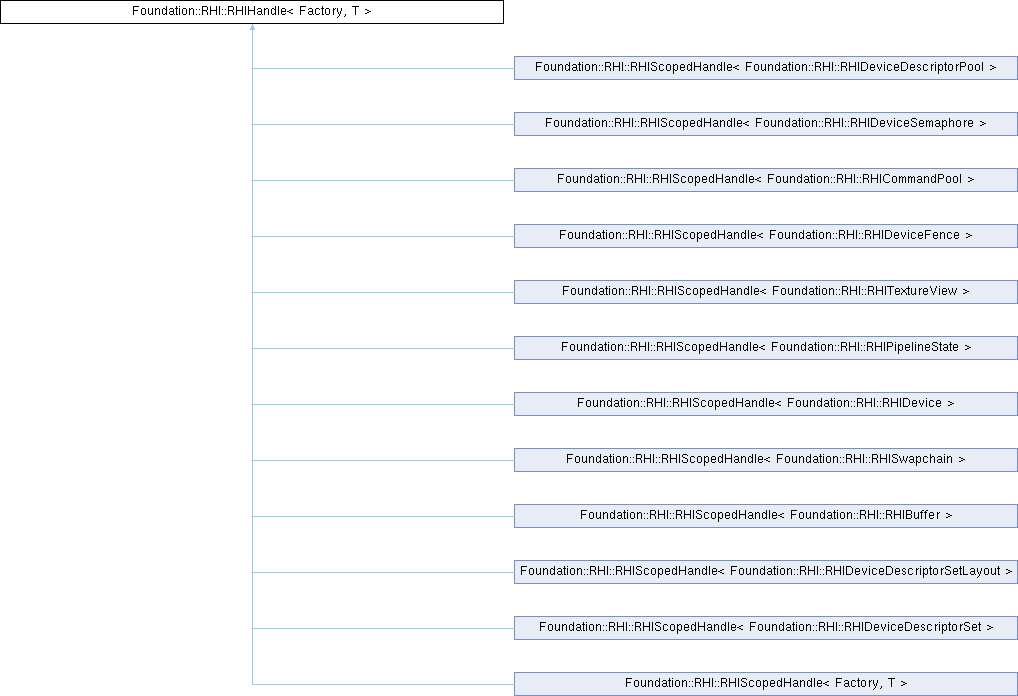Handle type for RHI Objects. More...
#include <Details.hpp>
Inheritance diagram for Foundation::RHI::RHIHandle< Factory, T >:

Public Member Functions | |
| template<typename U = T> | |
| U * | Get () const |
| Retrieves the underlying RHIObject pointer. It is undefined behavior to use the returned pointer after the underlying resource has been destroyed. | |
| T * | operator-> () const |
| constexpr Handle | operator() () const |
| constexpr | operator bool () const noexcept |
| constexpr T * | operator* () noexcept |
| bool | operator== (const RHIHandle &other) const |
| bool | IsValid () const |
| Check if the handle is valid (i.e. associated with a Factory and not kInvalidHandle) | |
| void | Invalidate () |
| Resets the handle to an invalid state. After calling this, the handle is no longer associated with any Factory or resource. | |
Public Attributes | |
| Factory * | mFactory {nullptr} |
| Handle | mHandle {kInvalidHandle} |
Detailed Description
Handle type for RHI Objects.
RHIHandle<Factory, T> are trivially copiable objects that provide a view into the underlying RHIObject storage. When a Factory goes out of scope, all underlying RHIObjects are destroyed.
The behavior is undefined to use a Handle after it's Factory has been destroyed or the resource it refers to has been destroyed.
Member Function Documentation
◆ Get()
|
inline |
Retrieves the underlying RHIObject pointer. It is undefined behavior to use the returned pointer after the underlying resource has been destroyed.
- Template Parameters
-
U Pointer type to retrieve as. U is required to be castable from T
◆ Invalidate()
|
inline |
Resets the handle to an invalid state. After calling this, the handle is no longer associated with any Factory or resource.
◆ IsValid()
|
inline |
◆ operator bool()
|
inlineconstexprnoexcept |
◆ operator()()
|
inlineconstexpr |
◆ operator*()
|
inlineconstexprnoexcept |
◆ operator->()
|
inline |
◆ operator==()
|
inline |
Member Data Documentation
◆ mFactory
| Factory* Foundation::RHI::RHIHandle< Factory, T >::mFactory {nullptr} |
◆ mHandle
| Handle Foundation::RHI::RHIHandle< Factory, T >::mHandle {kInvalidHandle} |
The documentation for this class was generated from the following file:
- Source/RHICore/Details.hpp